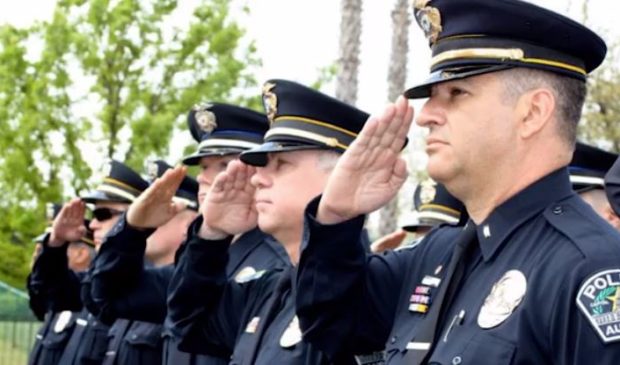Public Safety Commission endorses police union contract
Tuesday, December 5, 2017 by
Jack Craver Rejecting the pleas of police accountability activists, the Public Safety Commission voted Monday night to recommend the approval of the proposed new union contract between the city of Austin and the Austin Police Association.
Both Police Chief Brian Manley and APA President Ken Casaday stressed that if a contract is not approved, police officers will go back to operating according to standard state civil service rules. Hiring and promotions would be based solely on a written test and some of the accountability measures that Austin has put in place in recent years would go away.
Manley highlighted a number of accountability provisions that the city got the union to agree to, including allowing citizens to file anonymous complaints against police officers and permitting a member of the Citizen Review Panel to watch the live interview the department conducts with officers after a shooting incident. The panel will also have new powers to question the person who made the complaint and additional witnesses, although it will not have subpoena power.
Finally, said Manley, the Citizen Review Panel will be able to make public recommendations in response to misconduct allegations to the chief, and the chief’s response to the recommendation will be public as well.
“We’ll have accountability all the way up to the chief’s office,” he said.
Activists who have campaigned for greater accountability decried the contract as a surrender by the city. Complaints against officers would still have to be made within 180 days unless they involve misconduct that could lead to criminal charges, said Chris Harris of Grassroots Leadership.
Citing the case of Breaion King, a woman who captured on dashcam being slammed to the ground by an APD officer in June 2015, Harris said that while the officer who made the contact might be eligible for investigation after more than 180 days, his fellow officer who was caught on tape saying that black people have “violent tendencies” would likely be in the clear.
Harris noted that during the contract negotiations, Casaday had said the department was split “50-50” on whether the treatment of King had been fair.
“If half of the police believe that the incident with Breaion King was OK, how can we negotiate with their duly chosen representatives?” he asked. “I contend they (should) have no role in determining their own disciplinary regime, their own investigatory regime.”
Commission Chair Rebecca Webber said that she supported approving the contract despite her persistent frustrations with the processes for investigating police misconduct.
“I don’t think that the right way to get a culture change at the police department is to rip the rug out from under 1,600 officers who are out doing their job right now,” she said.
Instead, Webber emphasized the importance of having a department leader who truly cared about holding police officers to high standards. In Chief Brian Manley, she said, the community has that.
Commissioner Preston Tyree similarly said that he has “serious concerns about use of force” and that it has been applied “in ways that are discriminatory,” but similarly argued that blocking the union contract would not be an effective way to bring about improvements.
Commissioner Kim Rossmo said that he was unconvinced that the commission had any business weighing in on a collective bargaining contract, which he argued fell outside of its mandate to advise City Council on budgetary and policy matters. He also worried about the implications of a rejected contract for officer morale and the relationship between the city and its employees.
“I lived in cities where labor unrest is very common and it’s not pleasant,” he said.
Commissioner Carol Lee offered a compromise resolution recommending that Council work to make improvements to the contract or else shorten its duration from five years to two years.
Casaday responded that the current proposal took 10 months of negotiations between the city and the union and cost both a “tremendous amount of money.” If it isn’t approved, he said, his members do not want to return to the bargaining table for at least another year, meaning the police would soon begin to operate under the civil service code.
Commissioner Daniela Nuñez was the only full-throated opponent of the contract, describing the touted accountability measures as “small, low-hanging fruit improvements.” She urged for a shift in thinking on public safety to “more social-level solutions that are systemic in nature,” such as poverty, mental illness and addiction.
The commission had an opportunity, argued Nuñez, to “send a signal to City Council” in favor of a different and “more proactive” approach to public safety policy.
The commission voted 6-2 in favor of approval, with Nuñez and Lee in dissent.
Video still courtesy of the city of Austin.
The Austin Monitor’s work is made possible by donations from the community. Though our reporting covers donors from time to time, we are careful to keep business and editorial efforts separate while maintaining transparency. A complete list of donors is available here, and our code of ethics is explained here.
You're a community leader
And we’re honored you look to us for serious, in-depth news. You know a strong community needs local and dedicated watchdog reporting. We’re here for you and that won’t change. Now will you take the powerful next step and support our nonprofit news organization?






